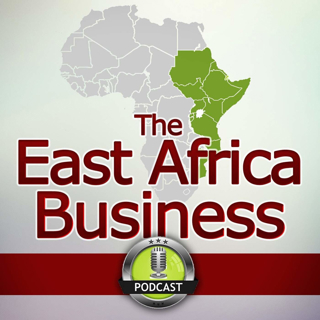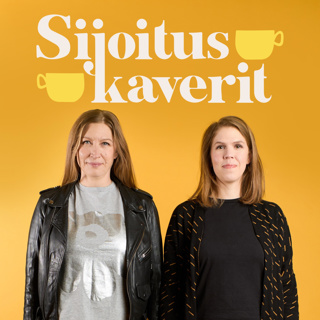
East Africa's first board game cafe, and why most Kenyans don't know how to play, with Bao Box
There are certain business models or concepts which seem to be universally popular.One big one recently has been creating a public space where friends can meet up for some food and drinks and play board games.In this episode I speak with Sumit Dodhia who a few years ago had the realisation that Kenya was missing such an institution, and so, along with 5 friends, decided he would start one.Two years later and Bao Box is a great success.There are over 100 board games on offer, and the business can attract custom throughout the day, compared to other places which are concentrated solely on after work and evenings.We talk about the costs and practicalities of getting the cafe set up, how they source their games from "board game dealers" operating in Kenya, and how his staff are paid to play board games in their downtime, as many never grew up playing them.It's a really interesting episode that, to me at least, highlights how different types of businesses can survive and thrive in this part of the world.READ MORE AT: https://theeastafricabusinesspodcast.com/2019/08/29/east-africas-first-board-game-cafe-and-why-most-kenyans-dont-know-how-to-play-with-sumit-dodhia-from-bao-box/
29 Elo 201947min

Move over Tesla, Opibus has a better way to get electric vehicles on African roads
We've got a very interesting interview this week, one that brings together using modern technology with a compelling market need.It's all about electric vehicles.Now, you've probably heard about Tesla and some other companies building cars that don't run on petrol.It turns out that, for now at least, these vehicles don't work in the East Africa context.Opibus is a Swedish company founded by a group of engineers looking at how to get more electric cars on the road.One route is the Tesla approach of building an electric car from scratch. The approach of Opibus is to take existing vehicles, rip out the petrol engine, and put in an electric engine instead.What that leaves you with is a much quicker and more flexible way to get electric cars being driven in different conditions.Interestingly, despite being a Swedish company, other than a few prototypes the company's operations have been almost entirely in Kenya.Several factors, such as the presence of lions and elephants, have made it the ideal place for the company to start.Mikael, the head of the commercial side of the business, and I discuss this, and all manner of things in this episode which I hope will leave you feeling positive on the role and room for innovation in the region.READ MORE AT: https://theeastafricabusinesspodcast.com/2019/08/22/move-over-tesla,-opibus-has-a-better-way-to-get-electric-vehicles-on-african-roads,-with-mikael-gange/
22 Elo 201953min

Video Games: Africa prepares for the $bn gaming market, with Nathan Masyuko from Ludique Works
Gaming is something that a lot of people may not consider as a business industry. I, for one, know or rather knew very little about it, though this interview with Nathan Masyuko from Ludique Works was one of the most insightful interviews I’ve ever had. We speak about the international, multi-billion dollar business in video games and Africa’s place in it It turns out that South Korea is the mecca for gaming, and that individual players are earning hundreds of thousands of dollars from playing video games. How? Well, the key has been to transform video games as a sport. For sports to get popular it can’t just appeal to the players, it needs to be turned into a spectator sport. This is the part which, as someone who has never watched another person play a video game as a form of entertainment, I found the critical piece to unlock how the industry is put together. Nathan and I also discuss the current state of the East Africa gaming community, the kinship between other nations building games, and Ludique Works vision for building the ecosystem. The simple message is that the industry in Africa has made it once creatives have the financial backing to focus on making and marketing games. There’s tons of interesting content in this interview, including links to Nathan’s best recommendations on African games to play. READ MORE AT:https://theeastafricabusinesspodcast.com/2018/10/11/video-games-africa-prepares-for-the-bn-gaming-market-with-nathan-masyuko-from-ludique-works/
11 Loka 201839min

Relocating top African software developers to European tech teams, with Caspar Coding
An interesting heuristic you can think about when considering companies operating in East Africa is where the demand comes from. There are lots of businesses you can see where the product or service is developed in the region and ultimately is consumed in East Africa. Through the lens of this podcast, just look to some recent episodes on Tissue Paper, Bottled Water Franchises, and Surveys. Whilst there is certainly a strategy in serving the growing local market, there is certainly a limitation on its size. There’s a whole different set of companies, operating from East Africa but whose end customer is outside the region. Caspar Coding is one of them. They work with European clients to place East African senior software developers directly in their teams. It’s one area where there’s a huge imbalance. In Western Europe alone there are 5 million openings for senior software developer jobs and lacks the supply of local talent to fill them. Caspar started off solving this with developers working remotely but now relocate ambitious developers directly to the European country. Sebastiaan, the CEO, is Dutch and so the early clients have been from there. This is a really great episode that touches on various themes in the region, such as demographics, finding product-market fit, and ultimately the power of gaining a modern skillset to grow your career. READ MORE AT:https://theeastafricabusinesspodcast.com/2018/10/04/software-developers-relocating-top-african-talent-into-european-tech-teams-with-sebastiaan-tan-from-caspar-coding/
4 Loka 201832min

Entrepreneur and author Sean Keough explains the need for a different financial model in developing markets
This is an episode which I really hope you stick with. As you’ll have seen from some of the other episodes, I find that often the “unsexy” aspects of doing business in East Africa are the most interesting and important. Financial modelling is not necessarily top of most people’s lists to think about, however, in this episode, Sean Keough puts forward a pretty compelling argument why you should. Sean has worked in Ethiopia for many years and has been building up businesses in the country which haven’t previously existed. He began with advising other companies on their growth and found that it was difficult to forecast what the impact would be of different business decisions. Entrepreneurs knew the ins and outs of their business, but couldn’t run through scenarios of how external factors affect their business, and as such were running blind, and also not having the rigour to attract foreign investment. Long story short, Sean has now written a book which takes entrepreneurs through how to model their business. It’s available on Amazon by searching for the somewhat cryptic title of “Financial Modelling in Developing Countries”. You’ll also find a link in the podcast description: Financial Modelling for Developing Countries The interview also allows us to speak more about the nuance of doing business in Ethiopia, one which is fundamentally different to others in East Africa owing to its closed economy legacy. There are tons of insights here around the different dimensions of working in Ethiopia, as well as the life aspect of running a business in the region. For more episodes from Ethiopia search for Ride Hailing and Takeaways in the archives, but now, it’s my great pleasure to introduce Sean Keough. READ MORE AT:https://theeastafricabusinesspodcast.com/2018/09/27/financial-modelling-entrepreneur-and-author-sean-keough-explains-its-importance-in-developing-countries/
27 Syys 201840min

The Economist's Africa editor compares East Africa's development with the rest of the continent
In this episode I speak with Jonathan Rosenthal, the Africa Editor of The Economist. Our paths crossed when I was back in London for a few weeks, and so we took the opportunity to meet, and speak about some of the continent wide trends which he’s seeing, from the vantage point of running the Africa desk for the magazine. Most episodes you’ll have listened to on the show will delve into a particular aspect of running a company in East Africa. Teasing out the specifics of why a certain business decision has been made or not, or trends that are present within a particular industry niche. This episode is slightly different. Jonathan and I take a much broader look at Africa’s development through the lens of, say, government debt ratios and currency reserves. Whilst this might seem a bit lofty, I’d encourage you to stick with it. In listening to the other episodes you will (I hope) get an understanding of the micro level of business in the region. To get a fuller picture requires, I believe, to understand the larger macro factors at play in the story of development. One such example of this is the government policy of raising debt from local banks. Because the interest rates they offer are so high, it distorts the incentives for banks to lend to local businesses. As such, this macro level effect of “crowding out” the private sector trickles down to the suppressionof local businesses looking for capital to grow. There are also references to the macro trends that can come from the innovation of rooftop solar systems. If you’d like to learn more on this, be sure to check out the Distributed Economy episode with Conrad Whitaker from Azuri Technologies. The interview took place at The Economist HQ in London which, helpfully, has a recording studio of its own. If you’re interested in hearing more from The Economist, be sure to check out their regular podcasts which feature updates, insights and in-depth interviews that expand on their stories. READ MORE AT:https://theeastafricabusinesspodcast.com/2018/09/20/the-economist-how-east-africas-development-compares-with-the-rest-of-the-continent-with-jonathan-rosenthal-africa-editor-of-the-economist/
20 Syys 201850min

Big retail CEO Daniel Githua explains the role of supermarkets formalising the East African economy
Some of the biggest and most visible players in any country are the supermarkets. They employ thousands of people, have a wide geographic presence and interact with many aspects of the economy through supply chains and products sold. Tuskys is one of the biggest in Kenya, and East Africa, and in this episode I interview Daniel Githua the CEO. The interview was pencilled in to take 30 minutes, but there ended up being so much interesting stuff that we continued recording, meaning it’s one of the longer episodes on the show to date. I think part of the reason was the depth of insights that Daniel had, and the frankness with which he spoke about both opportunities and current downsides in running the business. Some highlights from the interview include: the macro trends in formalising the retail sector in Kenya and how reaching new towns transforms the local economy, the biggest opportunities he sees for retail products across different categories, and how the market may change in the coming years, with the introduction of large international retailers like Carrefour and Shoprite If you’re interested in other interviews about food and retail, look to episodes on Cooked Beans, Invoice Financing and especially on Coconuts which talks a lot about the struggles manufacturers have with payment terms when selling to supermarkets, something Daniel recognised that the retail industry has to address. At times there might be a bit of shuffling, and sips of tea (the Tuskys staff were very accommodating) and so please excuse and slurps or shuffles which exist at the beginning – or at least when the tea was still hot. READ MORE AT:https://theeastafricabusinesspodcast.com/2018/09/13/supermarkets-formalising-retail-in-east-africa-with-daniel-githua-of-tuskys/
13 Syys 201858min

Booming factory business. Tales of growth, expansion and toilet paper, from Darshan Chandaria
Manufacturing is one of the major value drivers in an economy. In this episode, I speak with Darshan Chandaria, Group CEO of Chandaria Industries, the company founded by his grandfather in the late 1940s and which has now diversified into other areas. The core business is hygiene products: recycling waste paper and turning it into tissue and other products. This episode is slightly longer than usual, mainly because there just seemed to be so much to talk about. This includes the set up of their fully integrated operation, the thought process of building a new factory, hiring strategies across the group and Darshan’s management strategy for leading the team. Essentially: find people on the same wavelength and leave them to it. There are also other tidbits of information in there around designing detachable roofs in the new factory, the comparatively high cost of transporting goods, as well as Darshan’s strategy for building his Instagram following. The interview took place at Chandaria HQ which is a working factory and so at times there might be some background noise of trucks moving around. I’m sure you’ll agree though that it adds to the effect. READ MORE AT:https://theeastafricabusinesspodcast.com/2018/09/06/tissue-paper-expanding-one-of-east-africas-top-manufacturing-groups-with-darshan-chandaria-of-chandaria-industries/
6 Syys 201848min





















